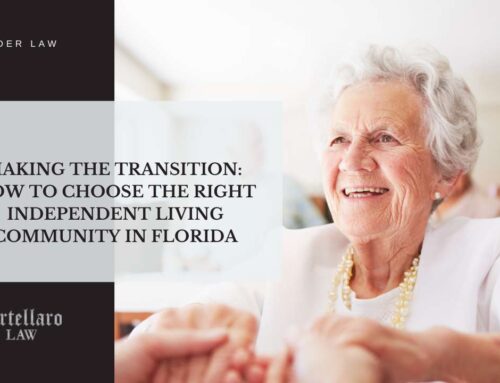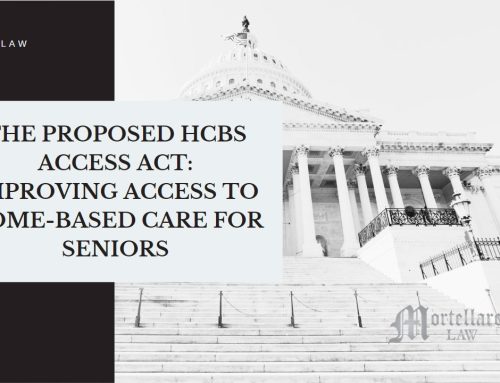Elder Law Attorney Tampa | In applying for government aid programs such as Medicaid, where the senior lives is an important determining factor in the eligibility process. Though many seniors prefer to remain in their own private residences, eventually many decide it is safer and more beneficial to move into a residence community setting. These fall into four basic categories.
Independent Living: This is most like a townhome or apartment community, but everyone is a senior. Mom has her own, unit, so there is a great deal of privacy. She generally takes care of herself, but maybe family members or friends come by regularly to help when necessary. There is some level of security, organized community events to socialize, and assistance with meals, transportation to medical appointments and laundry. The cost is generally low.
Assisted Living: These communities are regulated by the state, and are a step up in services and cost ($2,000-$4,000 a month but varies). Mom may have a private room, or she might share a room with another person. The facility is staffed 24 hours a day, and trained staff members provide Mom assistance with both activities of daily living (bathing, toileting) and instrumental activities of daily living (monitoring of medication, meal preparation). The facility restricts access from outside and prevents wandering.
Nursing Home: This is another significant leap in services and cost (reaching $10,000 or more per month), as these state-regulated communities are staffed by medical care nurses and therapists at all times, with doctors on call. Mom may be more confined and require constant medical monitoring that requires a greater level of training and licensing than an ALF would provide.
Continuing Care: These communities are designed to be all-encompassing, from independent living units to skilled rehab and nursing facilities, all on the same grounds. Mom may want to live out her days in one location. She can start out in independent living, move to an ALF when the time is right, and go to skilled nursing if she eventually needs that much care – all in one place.
For more information about facilities, cost and getting Medicaid assistance for long-term healthcare, contact Mortellaro Law and schedule a free, one-hour initial consultation.






